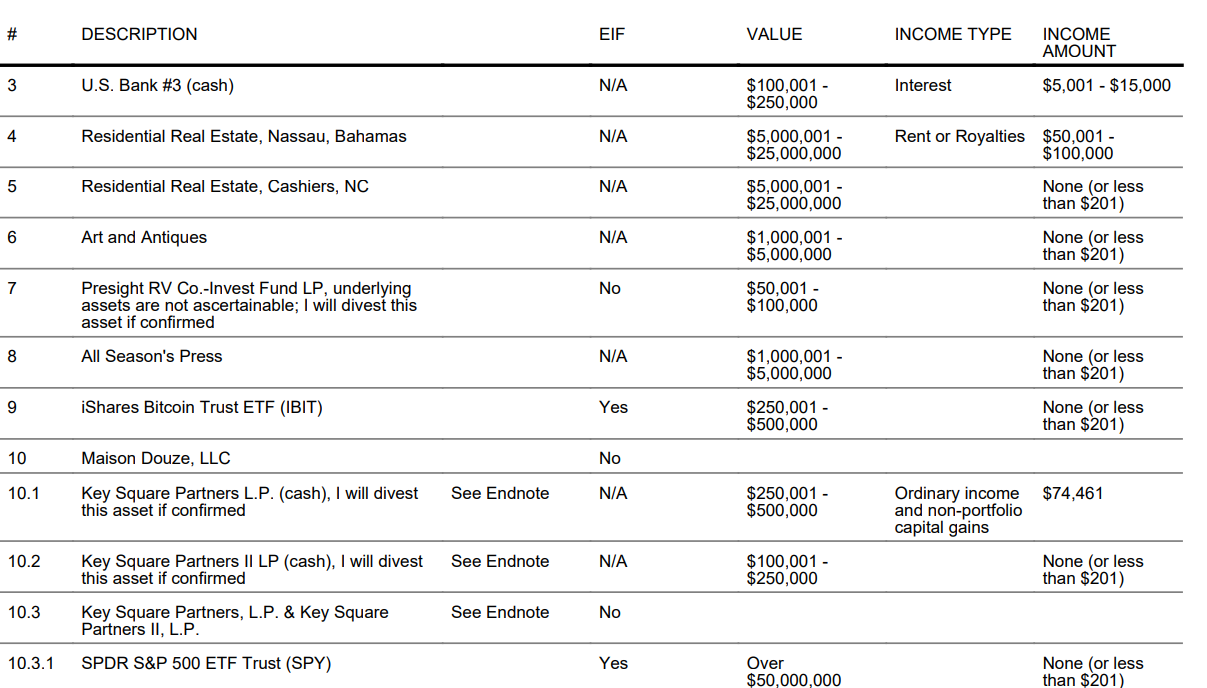Scott Bessent, President-elect Donald Trump’s nominee to be Treasury Secretary, will face a major financial restructuring if approved by Congress.
This process includes divesting many investments to comply with ethical standards for public service.
Bitcoin ETF shares are being considered for Treasury Secretary candidates
Bessent holds a significant stake in BlackRock’s Bitcoin ETF, IBIT, with a value ranging from $250,001 to $500,000. This ETF manages more than 50 billion USD in assets, making it the largest Bitcoin fund globally today.

Bessent’s investment in Bitcoin is in line with his well-known advocacy for cryptocurrencies. The Treasury Secretary candidate has seen cryptocurrencies as a financial empowerment tool and a viable option for young investors looking for an alternative to traditional finance.
In addition to Bitcoin ETF shares, the financial assets announced by Bessent include a rich and diverse investment portfolio. These assets include large investments in leading ETFs such as SPDR S&P 500 Trust (SPY), Invesco QQQ Trust (QQQ) and Invesco S&P 500 Equal Weight ETF (RSP). In addition, he also has smaller stakes in gold and silver funds, demonstrating a broader interest in diverse asset classes.
The total value of his financial assets, as announced, is about 521 million USD. The report shows there are high-value holdings, including investments involving hedge funds, US government bonds and money market positions.
Bessent must sell some of these assets within 90 days to avoid potential conflicts of interest if confirmed by Congress. He will also resign from Key Square Group, the hedge fund he founded, and sell his shares in the company.
Meanwhile, Mathew Sigel, head of research at VanEck, posed question Will Bessent need to sell its Bitcoin ETF shares? Notably, Bessent’s financial assets announcement clearly stated the assets he will divest.
His confirmation hearing is scheduled for January 16, 2025. As Secretary of the Treasury, he will play a key role in advancing the incoming administration’s economic policies and shaping its strategy. financial and monetary reform strategy.
